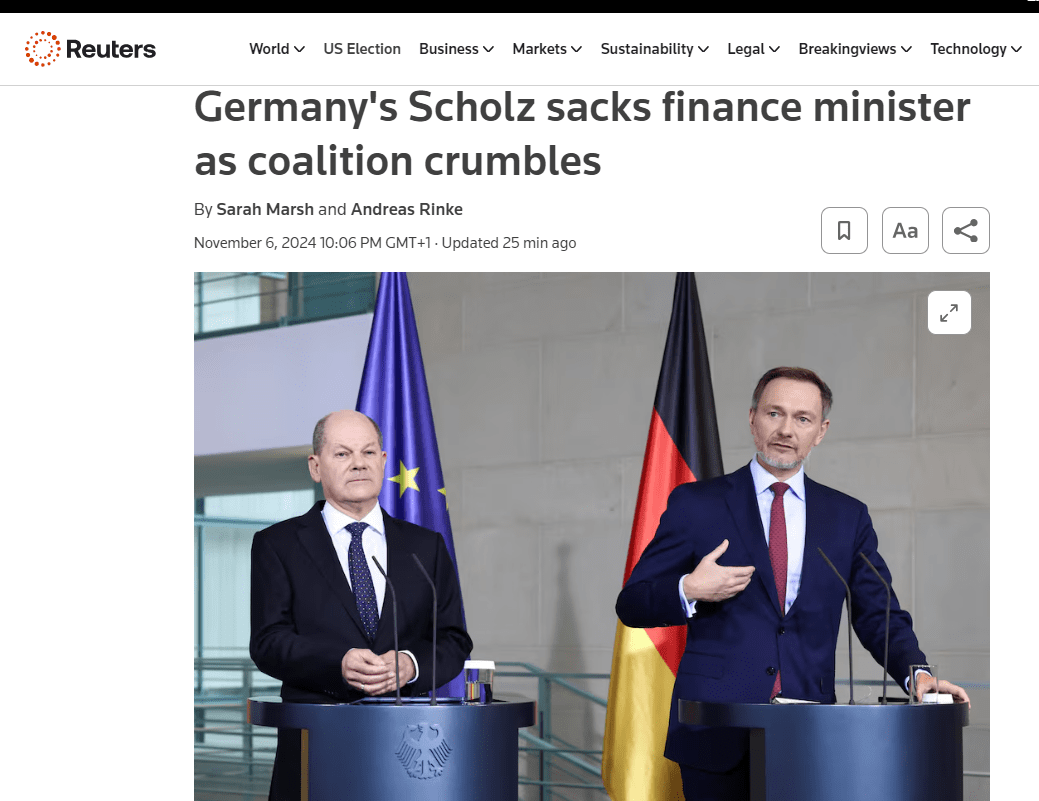BERLIN, Nov 6 - German Chancellor Olaf Scholz on Wednesday dismissed Finance Minister Christian Lindner from the Free Democrats (FDP) and said he would hold a parliamentary vote of confidence in the government in January, sparking political chaos in Europe's biggest economy hours after Donald Trump won the US presidential election.
Scholz is expected to lead a minority government, either just of the Social Democrats or with the Greens, the second largest party.
The collapse of Scholz's three-party coalition capped months of tug-of-war over budget policy and Germany's economic direction, with the government's popularity falling and far-right and far-left forces rising.
"We need a government that is able to act, that has the power to take the decisions necessary for our country," Scholz told reporters.
Scholz said he fired Lindner because of his obstructionist behaviour in budget disputes and accused the minister of putting party before country and blocking laws for spurious reasons.
The move comes a day after the election of Republican Donald Trump the US president and Europe is trying to forge a unified response to issues ranging from possible new US tariffs to the war with Russia in Ukraine to the future of the NATO alliance.
The government crisis comes at a critical time for Germany, whose economy is in decline, infrastructure is ageing and the military is unprepared.
The political upheaval could fuel growing frustration with Germany's mainstream parties in favour of younger populist movements, including the anti-immigration Alternative for Germany (AfD).
With France also facing political uncertainty after this year's snap elections, unrest in the European Union's two largest economies could complicate efforts to deepen the bloc's integration at a time when it faces challenges from both east and west.
The coalition is divided on how best to save Europe's largest economy, which is facing a second year of decline and a crisis in its economic model following the end of cheap gas supplies from Russia after its invasion of Ukraine in 2022 and amid growing competition from China.
FDP suggested as a response to this bad situation, cut public spending, lower taxes and less regulation. He also wants to slow Germany's transition to a carbon-neutral economy.
While the SPD and the Greens differ on some issues, they agree on the need for targeted government spending.
On Monday, Economy Minister Robert Habeck of the Greens made a statement against the FDP big concessionwhen he said that the funds earmarked for subsidies for Intel's new chip factory (INTC.O), opens new tab could now be used to plug the hole in the budget.
Reuters/ gnews -RoZ



